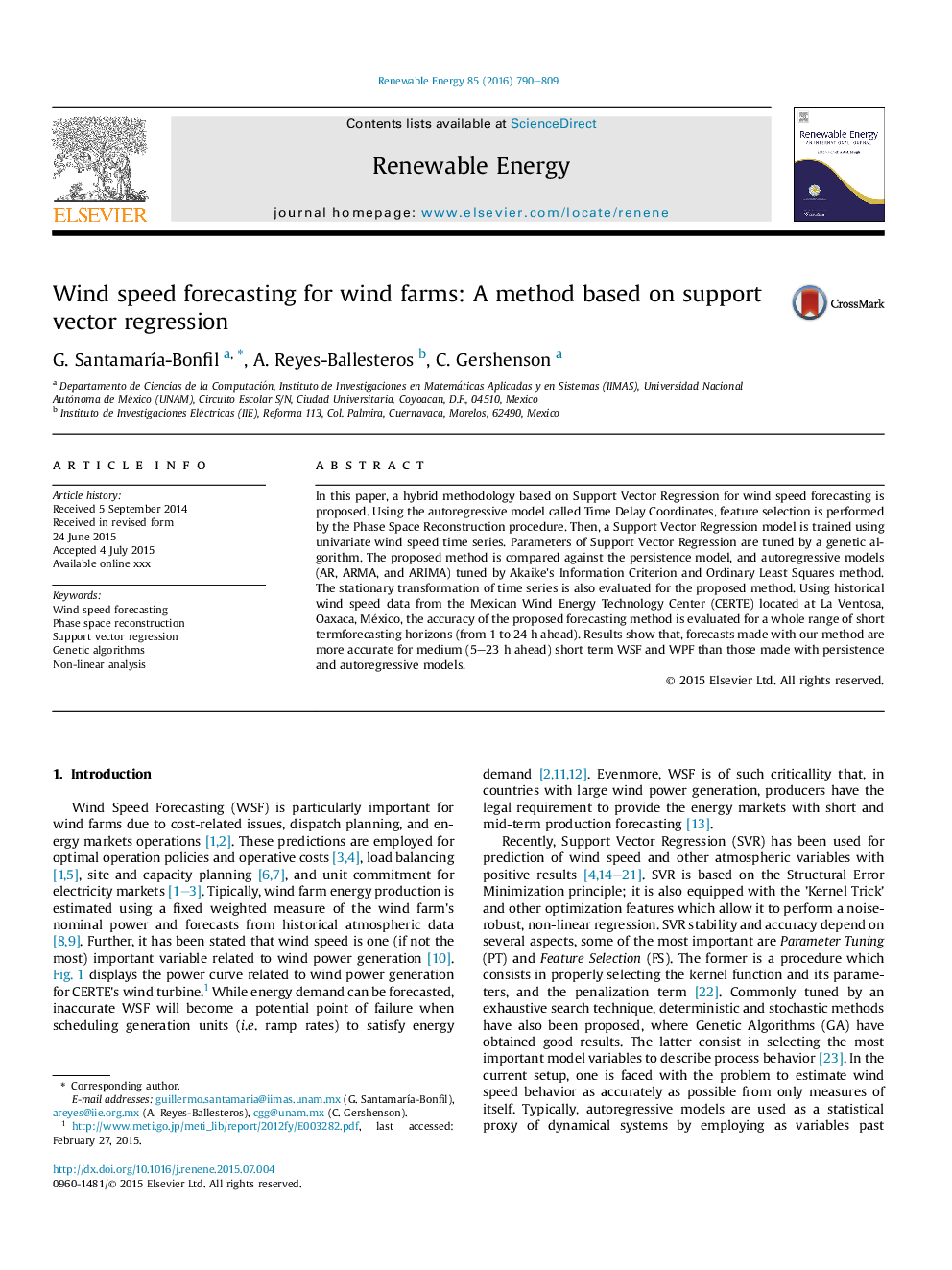| Article ID | Journal | Published Year | Pages | File Type |
|---|---|---|---|---|
| 6766877 | Renewable Energy | 2016 | 20 Pages |
Abstract
In this paper, a hybrid methodology based on Support Vector Regression for wind speed forecasting is proposed. Using the autoregressive model called Time Delay Coordinates, feature selection is performed by the Phase Space Reconstruction procedure. Then, a Support Vector Regression model is trained using univariate wind speed time series. Parameters of Support Vector Regression are tuned by a genetic algorithm. The proposed method is compared against the persistence model, and autoregressive models (AR, ARMA, and ARIMA) tuned by Akaike's Information Criterion and Ordinary Least Squares method. The stationary transformation of time series is also evaluated for the proposed method. Using historical wind speed data from the Mexican Wind Energy Technology Center (CERTE) located at La Ventosa, Oaxaca, México, the accuracy of the proposed forecasting method is evaluated for a whole range of short termforecasting horizons (from 1 to 24Â h ahead). Results show that, forecasts made with our method are more accurate for medium (5-23Â h ahead) short term WSF and WPF than those made with persistence and autoregressive models.
Keywords
Related Topics
Physical Sciences and Engineering
Energy
Renewable Energy, Sustainability and the Environment
Authors
G. SantamarÃa-Bonfil, A. Reyes-Ballesteros, C. Gershenson,
